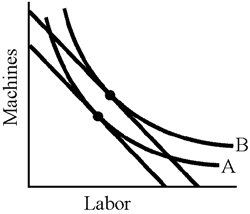Discuss three channels by which monetary policy affects stock prices and aggregate spending
What will be an ideal response?
The answer should include three of the following:
In Tobin's q theory, a monetary expansion increases stock prices, increasing the value of the firm relative to the cost of new capital. This stimulates investment in new capital goods, which in turn increases aggregate spending.
A monetary expansion increases stock prices, increasing wealth and stimulating consumption and aggregate spending.
Expansionary monetary policy increases equity prices. This improves firms' balance sheets, reducing adverse selection and moral hazard and increasing lending for investment, which increases aggregate spending.
In the household liquidity effect, the increase in equity prices due to a monetary expansion improves consumer balance sheets, reducing the probability of financial distress, and increasing consumer spending on durable goods and housing.
You might also like to view...
Figure 7-16

In Figure 7-16, as we move from A to B,
a.
the relative price of machines falls.
b.
total cost falls.
c.
output increases.
d.
labor becomes less productive relative to capital.
According to CDC data, who is more likely to acquire a rickettsial disease?
A. Tom who traveled to Arizona for the summer B. Sally who went to the beach at Big Sur, CA C. Mike who visited his aunt in Sub-Saharan Africa D. Phil who stayed home and mowed his lawn E. Harry who works in a pet store and hates fleas and ticks